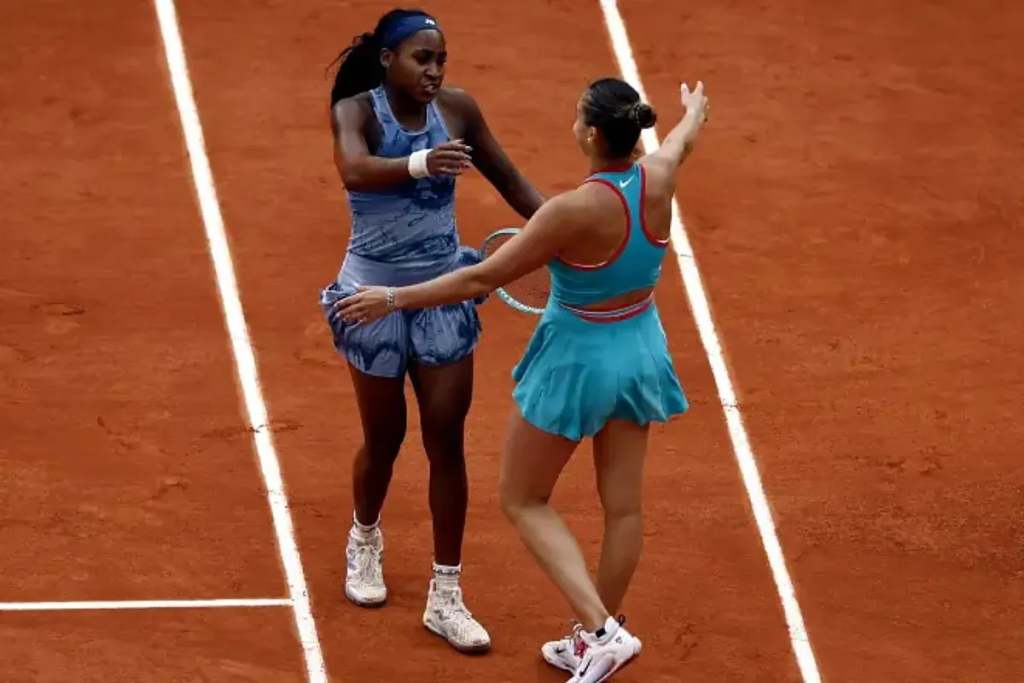Coco Gauff and Aryna Sabalenka, who battled fiercely at Roland Garros just weeks ago, have now swapped tension for togetherness as Wimbledon approaches.
Their surprising interaction on Centre Court has rewritten the narrative surrounding their rivalry. Here’s a fresh take on this evolving relationship, with the facts, quotes, and key moments that paint the full picture.
From clash to connection
Gauff triumphed over Sabalenka in a gripping French Open final on June 7, enduring shifting winds, a rollercoaster tiebreak, and long rallies.
Gauff captured the title 67 (5), 62, 64, thanks to her mental steel, strategic defence and resilience under pressure.
Sabalenka, by contrast, struggled with 70 unforced errors, compared to Gauff‘s 30, and immediately shifted the spotlight inward.
During the postmatch press conference, Sabalenka said:
“Not because she played incredible, [but] because I made all of those mistakes.”
The remark sparked debate. Gauff responded graciously, defending her game and expressing empathy toward Sabalenka‘s emotional state . Sabalenka later backtracked on social media:
“Coco handled the conditions much better than I did and fully deserved the win.”
A dance that speaks volumes
On June 27, Gauff (world No. 2) and Sabalenka (world No. 1) shared an unexpected yet heartwarming moment during a Wimbledon practice session.
Clips posted to TikTok and Instagram show the two smiling and dancing together to “Gonna Make You Sweat”, an act described as proof their relationship has healed.
Sabalenka captioned the Instagram post, “TikTok dances always had a way of bringing people together”. Gauff echoed the sentiment on her own TikTok:
“the olive branch was extended and accepted! we’re good so you guys should be too.”
A broader backdrop
This reconciliation takes place amid growing momentum in women’s tennis.
The emergence of rivalries like Gauff-Sabalenka, alongside champions such as Iga Switaek and Madison Keys, is fueling increased interest and injecting fresh energy into the sport.
Wimbledon itself marks a turning point in officiating: it’s the first edition without human line judges, fully embracing automated linecalling technology.
What lies ahead
The pair sit in opposite halves of the centre of the draw, making a final showdown possible only if both reach the tournament’s climax.
Gauff opens against Dayana Yastremska, while Sabalenka faces Canadian qualifier Carson Branstine.
Beyond this tournament, both athletes are part of a collective push for more prize money and player voice in Grand Slams.
On and off the court, they’re shaping a modern era of pro tennis, one that features fierce competition alongside shared purpose.
While the French Open exchanges once cast a new layer of drama over their rivalry, the dance at Wimbledon marks an uplifting moment of unity.
As both players prepare for high-stakes battles on grass, fans can appreciate not only their skill, but the sportsmanship that binds them, even in the wake of tension.
Read the full article here

